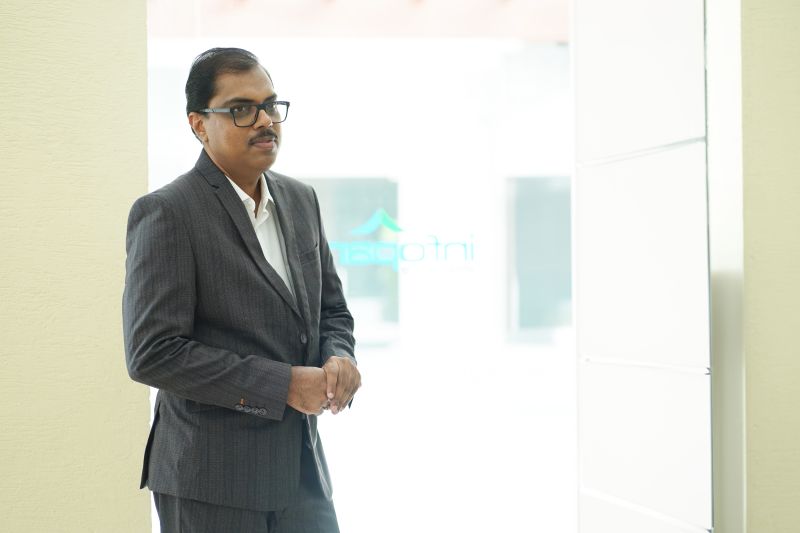
For more than 10 years, I thought the best way to succeed was to change jobs, projects, and even industries, thinking each move would help me grow. I believed that the more new things I tried, the more skills I would gain, and the better my reputation would become. But I didn’t realise back then that I wasn’t moving forward. In fact, with each change, I had to start over, which slowed down my progress instead of helping me.
I see a lot of people, especially younger ones, making the same mistake I did. It’s easy to think that switching to a new job or company will help you grow. But in reality, changing jobs all the time doesn’t always mean you’re moving up. It wasn’t until a mentee asked me, "Should I switch industries or stay?" that I thought about my path and realised where I had made mistakes.
The Misconception of Job-Hopping as Career Growth
I thought, like many people, that changing jobs was essential for personal and professional growth. Staying at one company for too long felt limiting. I believed that working on different projects and for different companies would make me better at my job and boost my reputation. After all, having lots of experience should make you more valuable, right?
Back then, I didn’t understand that changing jobs meant beginning again. I spent time creating a solid reputation and forming relationships, but each switch forced me to abandon that progress and start from scratch. But when I left for a new job, all that effort stayed behind, and I had to begin again from scratch.
This kept happening over and over for many years. I was getting experience, but it wasn’t building up steadily. Instead of moving up in my career, I kept starting over every few years. I was learning, but it didn’t add up or make a lasting difference.
The Importance of a Personal Learning Plan
Many individuals think that changing jobs helps them improve their skills and advance in their careers, but these are two separate things. It’s important to have a personal plan that helps you grow your skills slowly and in a lasting way. This plan should include things like:
- Figuring out the main skills you want to get better at.
- Setting goals that match what you want to do in the future.
- Looking for chances at your current job or outside of it to improve those skills?
A personal learning plan means being focused on what you want to learn. It’s about building your skills little by little over time, instead of starting over every few years.
Joining a Community to Build a Lasting Brand
My view changed when I joined Microsoft’s Developer Network (MSDN). I started sharing my work with developers all around the world, which helped me build a strong, lasting reputation. This was a big moment in my career because it gave me new opportunities that I couldn’t get before.
By being part of MSDN, I was able to:
- Share what I know and can do with millions of developers worldwide.
- Receive awards for my work, like being named Microsoft’s Most Valued Professional (MVP).
This award showed that people noticed my skills and my dedication to helping the developer community. Everyone could see and judge my work. My reputation wasn't just connected to one company anymore, it was open for the whole world to see.
The Role of Public Platforms in Building Your Reputation
One of the best things I’ve learned is the power of building a reputation on public platforms. No matter what kind of work you do—developer, marketer, or designer—sharing your skills with a community helps you get recognized beyond just your company.
Here’s why this matters:
- Global Exposure: When you share your work on public platforms, more people can see it, not just the people at your job. You’re not stuck with just one company anymore. Instead, you can reach a lot of people around the world, like future employers, partners, and clients.
- Verifiable Skills: Public platforms let others check and see how good your skills are. When you share what you know and join important conversations, people can understand how valuable you are. Awards, like the Microsoft MVP, help show that you are skilled, and many different fields recognize these awards.
- Sustainable Reputation: Unlike switching jobs, which makes you start over each time, sharing your work on public platforms helps you build a strong reputation that lasts. It grows as you keep contributing and doesn’t go away when you change jobs or fields. It becomes a part of who you are.
A Word of Advice to Young Professionals
When my mentee asked if they should switch industries or stay where they are, I gave them simple advice: focus on building a strong and lasting reputation instead of just changing jobs all the time. The real way to grow in your career is to create value that goes beyond one company. Join communities, share what you know, and let your good reputation grow over time.
Public platforms like GitHub, Stack Overflow, and LinkedIn are great places to build your reputation. They let you show your skills, work with others, and get noticed for your talents, not just by one company.
My Final Thoughts
Looking back, I see that I spent ten years going after the wrong goal. I learned an important lesson: success isn’t about jumping from one job to another. It’s about building a strong reputation that people trust. This reputation doesn’t start over with each new job, it gets bigger and better as time goes on.
If I could give young professionals one tip, it would be this: build a reputation on a platform where it can grow. Keep learning and improving, and you’ll see new chances come—not because of where you work, but because of what you offer.
So, what’s your plan for building a strong reputation in your career? Share your ideas in the comments below!

How Strategic Decision-Making Saves Us Millions

The Right Way to Take Risks: Lessons From My Journey

The Role of Patience in Achieving Success in Healthcare Technology
